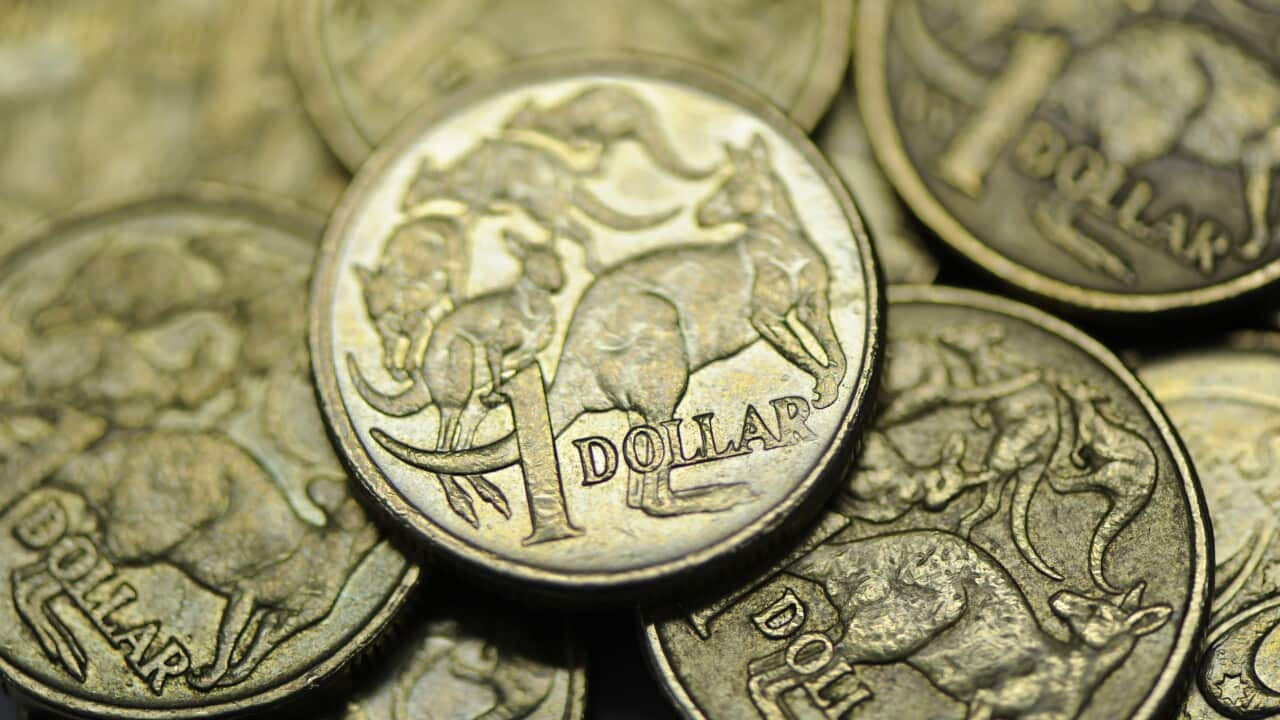Key Points
- The Fair Work Commission has increased the minimum wage by 5.2 per cent to $21.38 an hour
- The increase will impact 180,000 minimum wage earners
Liam works part-time at Bunnings on top of his studies.
But the rising cost of living means he can't afford to move out of home.
"Especially with the growing prices in housing, I won't be able to get out of my parents' basement for forever, basically," he told SBS News.
He hopes the increase in Australia's minimum wage to $21.38 an hour will help to change that.
"With that pay increase, I'll be able to afford so much more," he said.
"I think it's gonna be a big help in the industries where we don't really make a lot of money, so it's definitely a confidence booster going into the future knowing that I'll be able to afford a lot of necessities."
'Absolutely welcomed': Anthony Albanese responds to increase
The 5.2 per cent rise announced by the Fair Work Commission on Wednesday would mean a $40 weekly wage increase to $812.60 for someone working 38 hours, and will come into force from the start of July.
The increase will impact 180,000 minimum wage earners, but the aviation, tourism and hospitality sectors will have their pay increases deferred to 1 October.
Anthony Albanese said he "absolutely welcomed" the move.
"It makes a difference to people who are struggling with the cost of living," Mr Albanese told reporters on Wednesday.
The prime minister had made pushing for an increase in the minimum wage a key platform of his pitch to voters at the election campaign.
Mr Albanese said those on the lowest incomes deserved the additional support, despite the cost burden on businesses.
"What I'd say is that those small businesses will rely upon their workers that are really struggling with the cost of living," he said.
"This is $1 an hour."
The Albanese government had also written to the Fair Work Commission expressing its support for this response, but did not identify a specific increase.

Prime Minister Anthony Albanese. Source: AAP / PAUL BRAVEN/AAPIMAGE
Unions hail decision, but business has concerns
The pay increase will "filter through" from July, according to Fair Work Commission president Iain Ross.
But the Australian Chamber of Commerce and Australian Industry Group have voiced concern that the decision risks adding to inflationary pressures in the economy.
Mr Ross said the rising cost of living and soaring inflation have favoured an increase in the national minimum wage.
"Inflation erodes the real value of workers' wages and reduces their living standards," he said.
"The low-paid are particularly vulnerable in the context of rising inflation."
Mr Ross added that adjustments will "not have a significant adverse effect" on the performance of the national economy.
Employment Minister Tony Burke said he believed the government's submission had contributed to the final outcome.
"People will be seeing in their bank accounts what the change of government means," he said.
"A wage increase that never would have happened when we had a government committed and determined to keep wages deliberately low."
Proposals from some employer bodies to prevent any wage increase were rejected because the real wage reduction would be "even more severe", Mr Ross said.
The Fair Work Commission also proposed a 4.6 per cent increase in modern award minimum wages, or $40 per week.
Prior to the decision, unions argued there should be a 5.5 per cent increase to the minimum wage to keep ahead of the current inflation rate, which is 5.1 per cent.
The Australian Council of Trade Unions (ACTU) Secretary, Sally McManus said the union was "happy and proud" about the wage increase decision.
"The decision will make a significant difference to the pressures that low-paid workers are under," Ms McManus said.
"The decision is one that is reasonable and fair."
Ms McManus added that the increase will mean low-income workers will have better ability to pay for rent, groceries and energy bills.
She said the big real wage cuts which some employers argued for would have "hurt working families considerably".

Australian Council of Trade Unions secretary Sally McManus. Source: AAP / MICK TSIKAS/AAPIMAGE
The Australian Industry Group argued any increase should be limited to 2.5 per cent. Last year the national minimum wage increased by 2.5 per cent to $772.60 a week or $20.33 an hour.
The Australian Chamber of Commerce and Industry CEO Andrew McKellar called the minimum wage rise a "significant economic risk".
"It veers very much towards the upper end of possible outcomes which businesses expected."
"It poses a considerable burden to businesses which could be passed on to customers and will add to inflationary pressure," Mr McKellar said.
Australian Industry Group chief executive Innes Willox said the Fair Work Commission's decision would add "fuel to the inflation fire."
"The cost increase will be difficult to absorb for businesses that are already struggling to cope with big increases in material and energy costs, interest rate rises, supply chain disruptions and labour shortages," he said.
Reserve Bank Governor Philip Lowe this week warned inflation could reach 7 per cent by the end of the year.
Mr Lowe also said interest rates could reach 2.5 per cent, which would compound the significant rise in the cost of living.













